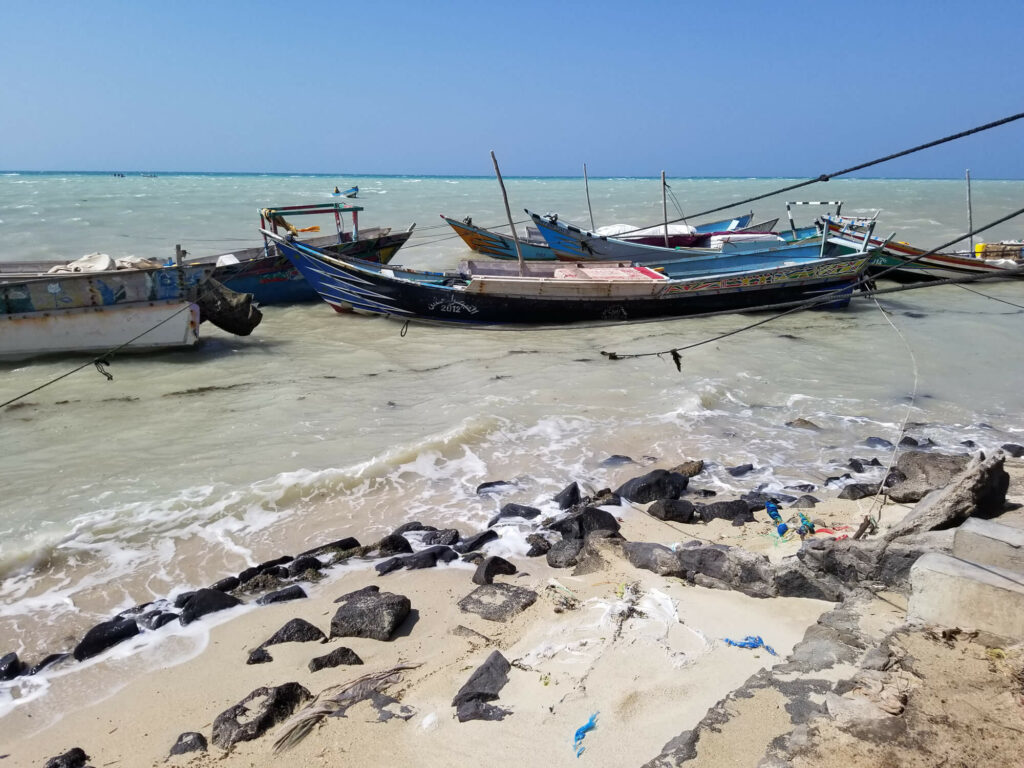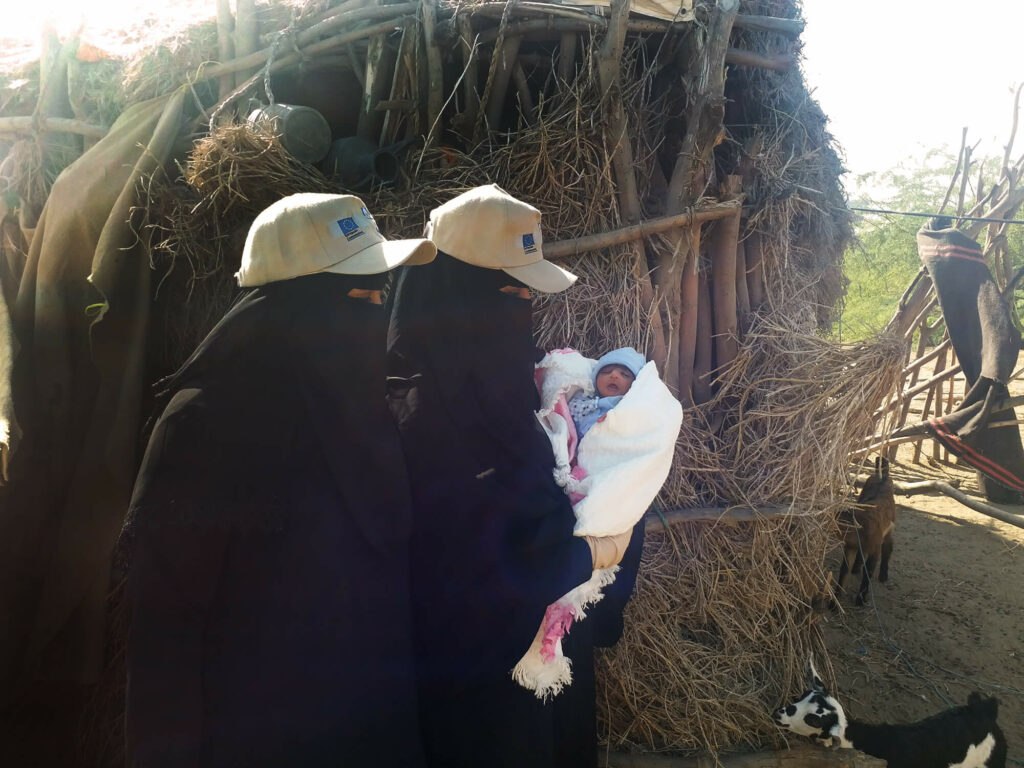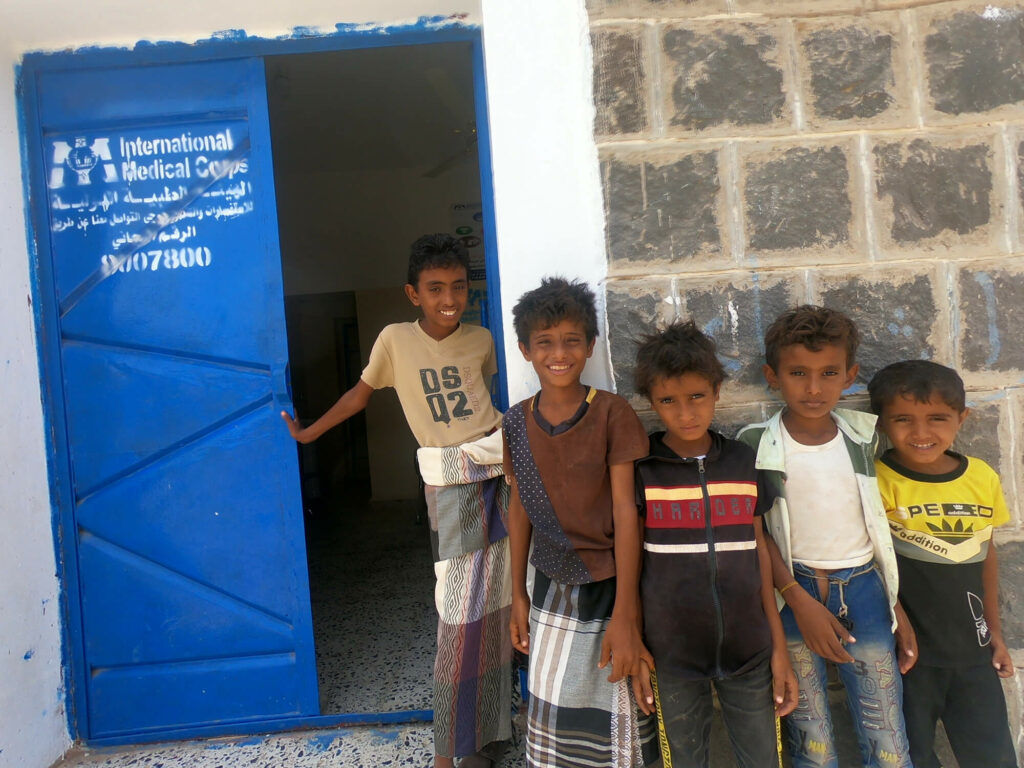Editor’s Note: International Medical Corps’ Yemen Blog presents a rare view of life on the ground in Yemen, chronicled by our first responders as they battle one of the world’s worst humanitarian disasters—fueled by poverty, hunger, disease and a seemingly endless war now in its seventh year, with no end in sight.
The entry below is written by Fayad Al-Derwish, our Senior Officer responsible for Water, Sanitation and Hygiene (WASH) programming in Yemen’s southern governorates. By its very nature, the humanitarian work Fayad does draws him to areas where Yemen’s hardship, hunger and human suffering are at their worst—and the war is never far away.
Here, along southern Yemen’s remote western coast, it’s hard to miss the true cost of the seemingly endless civil war that has played out in this forsaken corner of the Middle East. The landscape is pocked with destruction, beset by human displacement and the scars of an economy that barely exists. It is a grim reminder of what the United Nations calls the world’s worst humanitarian tragedy—caused by a conflict that in late March began its seventh year with little hope for peace anytime soon.
Although I now live in the southern port city of Aden, my work recently took me to the thinly populated western coast of Taizz governorate, where some of the worst fighting occurred during the early years of the war. Even before the hostilities broke out, life in the region was a struggle, as communities managed to eke out a living from coastal fishing or family farming. But since the war began in 2015, many of these jobs have disappeared, as supply lines for the fuel and other oil products required to sustain them weakened, then broke altogether.

With many of the region’s schools destroyed or damaged, and households desperate for income, school-age children now find casual work in the fields where they can. The small amounts of cash they bring in help families to survive, but the price is high—especially for young girls, whose access to a good education has long been a challenge, even at the best of times. In the current conditions, the chances of them attending school is smaller than ever.
Access to healthcare is also difficult. In a region that historically has not received its share of public services, many of the health facilities that did exist were damaged or destroyed earlier in the war and left abandoned.
Collectively, these factors combine to make this part of Yemen “ground zero” of a far broader humanitarian disaster that has left more than 230,000 people dead, more than 3 million displaced and millions more on the brink of famine.
Of the 13 health facilities we currently support in the region, International Medical Corps is restoring nine. The centerpiece of this effort was just recently completed: the area’s only full-service hospital, located in the town of Dhubab, which sits directly on the Red Sea coast, barely 20 miles across the waters from the shores of East Africa. In response to destruction caused by heavy fighting in 2017, we have rebuilt the structure, refurnished the interior, replaced medical equipment and restocked the pharmacy.
The hospital will once again serve a population of more than 35,000, ending an ordeal that for nearly four years has forced residents in need of hospital care to make a difficult choice between travel 140 miles south to the port city of Aden, or 30 miles north along the coast to the town of Al-Mukha—a shorter, but more dangerous journey—where we support another hospital.

In addition to the Dhubab hospital, we have also restored two smaller, badly damaged health facilities further inland, in nearby Mawza district. We also are making improvements to six other clinics and heath posts, where we have installed new medical equipment and restocked medicines, and provide monthly incentives to health workers.
Dr. Sambula Zaidi, manager of the Hassi Salem clinic in Al-Mukha district, told me that during the war, just about everything in the clinic was stolen—even the doors. It was also the only place in the village where local women could give birth, but assuring privacy for such an event required all patients at the clinic to move outside during the delivery. To better prepare the clinic for future obstetrics and maternity responsibilities, the renovation has included construction of a new reproductive health department in a separate building adjacent to the main facility. Soon there will be guaranteed privacy and dignity for all new mothers there—without moving existing patients.
Our mobile clinical teams also provide primary healthcare and nutrition services to those living in six of the region’s camps for internally displaced persons (IDPs), treating malnutrition cases, and offering medical and reproductive health consultations.
One of the displacement camps that the mobile team serves is at Al-Qatabiya, 20 miles from Al-Mukha. When a mother delivered her baby there earlier this year, one of our physicians, Dr. Gubran Al-Sufi, saw immediately that the infant had difficulty breathing, and recommended that the child be transferred to the hospital in the city that we staff. The mother agreed, and a week after admission, the child’s condition improved. She is now the very happy and proud mother of a healthy four-month-old boy named “Gubran” by grateful parents in appreciation of our physician’s role in saving his life. For us, it was one more reminder of how valuable our mobile medical team is in a region where healthcare is spread far too thinly.

In response to the COVID-19 pandemic, we have provided all healthcare facilities that we support along the western coast with hygiene and infection prevention and control (IPC) equipment, to protect staff and patients at these facilities, and to protect against a second wave of the virus, which has already taken hold elsewhere in Yemen. In early April of this year, as a key component in our efforts to strengthen the area’s patient-referral system, we donated an ambulance to the Al-Mukha hospital. It’s a heartening sign of women’s empowerment in Yemen that a majority of managers in the health facilities that we support in the Western Coast are female. This is important because it helps demonstrate the growing power of women in Yemen. I take this as a small but clear sign of hope for a region in Yemen that surely needs the help of all of its people if it is going to one day develop into a more productive part of the country.
View next blog:
Drawing New Strength from Those Who Have Lost Everything—Except Hope
View previous blog:
Finding New Hope and Resolve in the Midst of War, COVID-19 and Donor Fatigue
